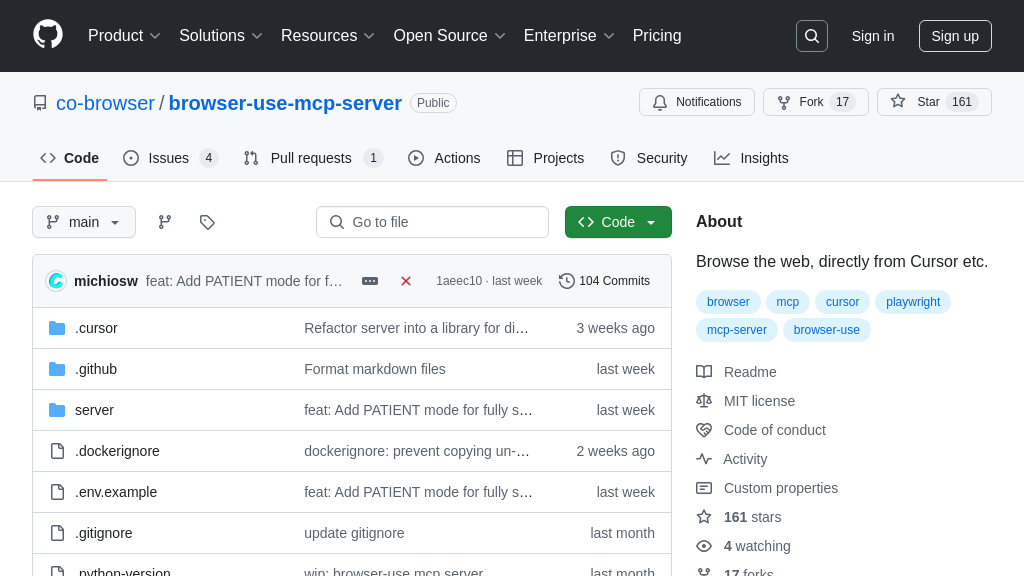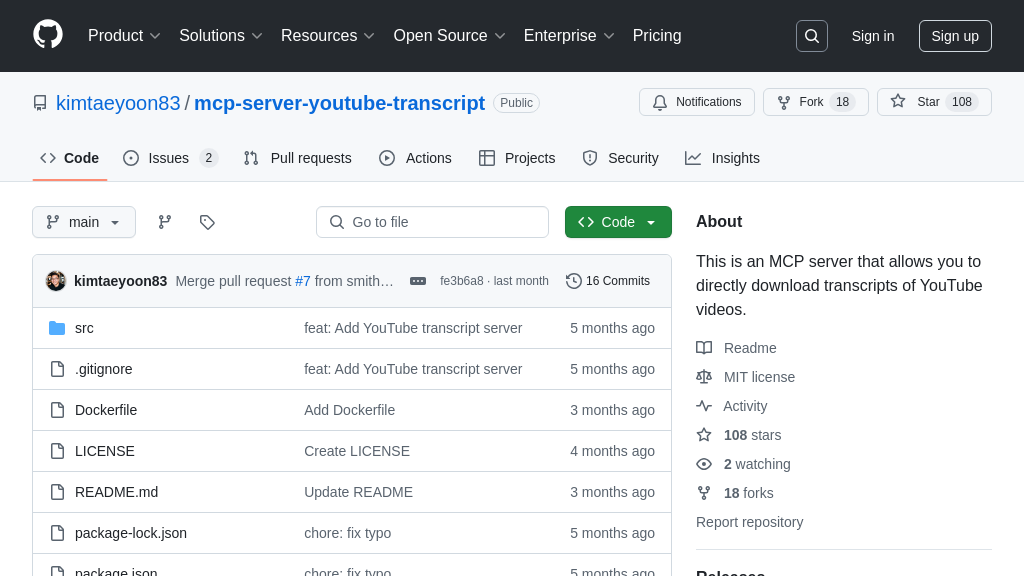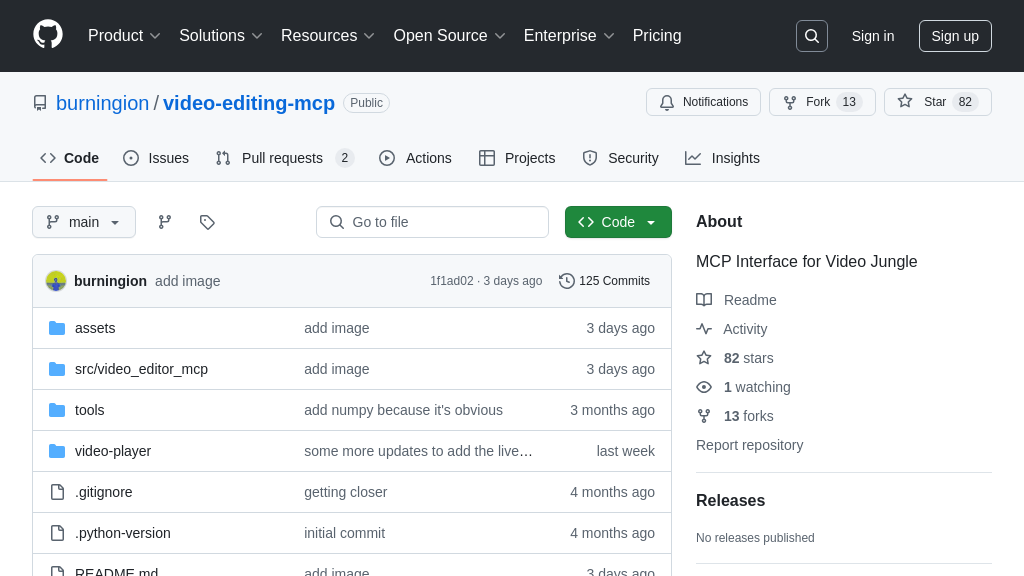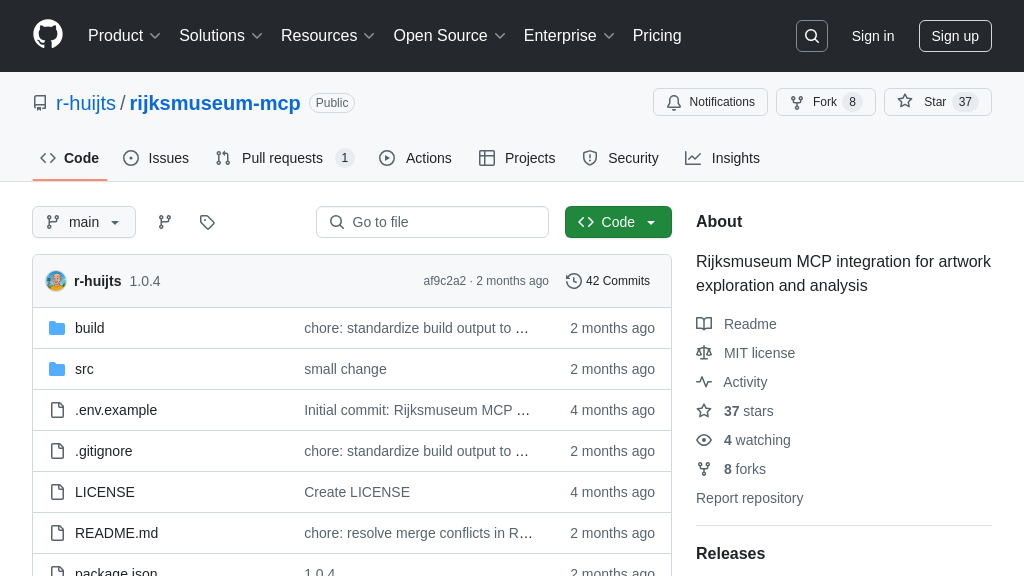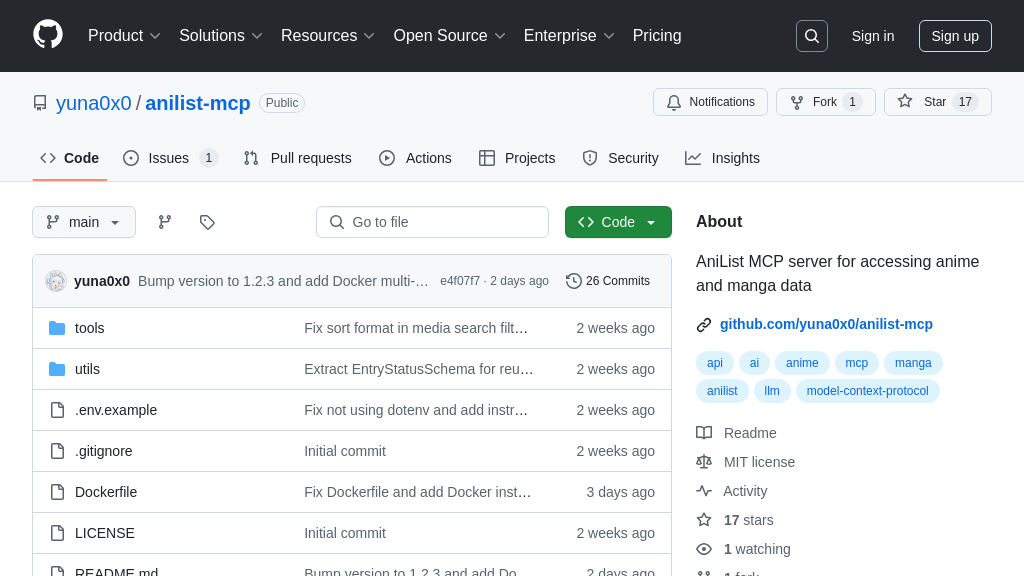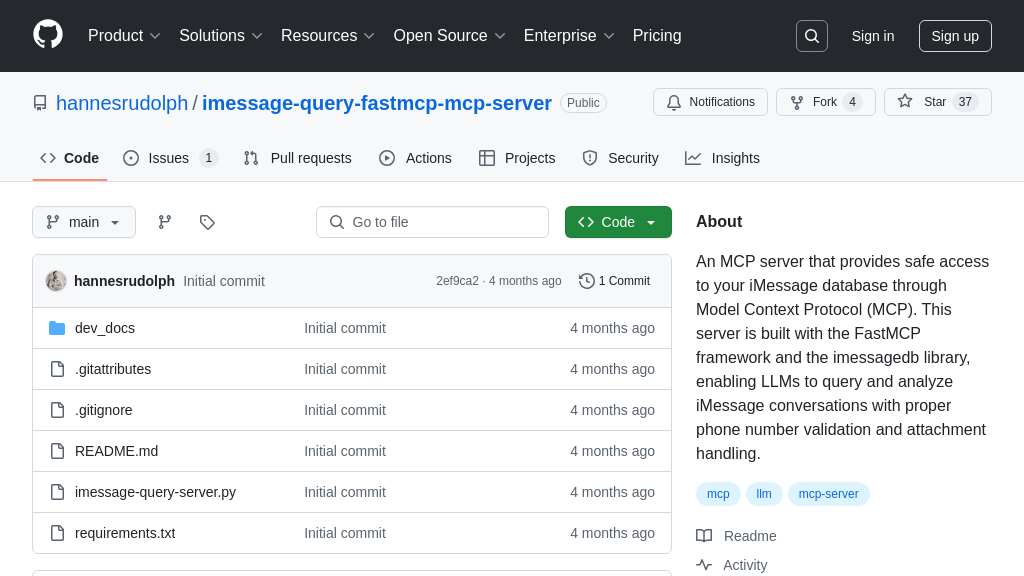web-search
Integrate free web search into AI models with the Web Search MCP Server. No API keys needed!
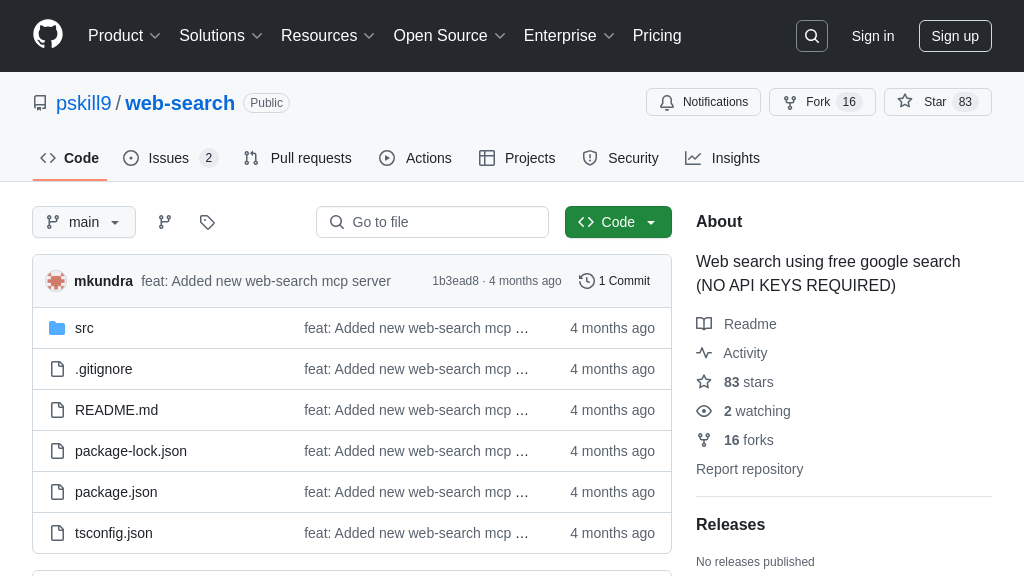
web-search Solution Overview
The Web Search MCP server is a valuable resource that empowers AI models with real-time web search capabilities using Google search results, without the need for API keys. This server acts as a tool within the MCP ecosystem, providing a search function that accepts a query and returns structured results including titles, URLs, and descriptions.
It seamlessly integrates with AI models through the MCP client-server architecture, allowing models to access up-to-date information for enhanced context and decision-making. Developers benefit from the ease of integration and the elimination of API key management. The core value lies in providing a readily available, cost-effective solution for web search, enabling AI models to stay informed and generate more relevant and accurate responses. Technically, it leverages web scraping to extract data from Google search results pages, offering a practical solution with certain limitations regarding rate limiting and result accuracy.
web-search Key Capabilities
Free Web Search
The Web Search MCP server provides AI models with the ability to access and process information from the internet without requiring API keys or authentication. It leverages web scraping techniques to extract data directly from Google search results, offering a cost-effective alternative to paid search APIs. This functionality allows AI models to perform tasks such as real-time information retrieval, research, and content summarization, enhancing their ability to provide up-to-date and contextually relevant responses. The server returns structured results, including titles, URLs, and descriptions, enabling AI models to easily parse and utilize the information.
- Use Case: An AI-powered chatbot can use the Web Search MCP server to answer user questions about current events or trending topics by querying Google and summarizing the top search results.
- Technical Detail: The server uses libraries like
axiosandcheerioin a Node.js environment to perform HTTP requests and parse HTML content.
Structured Search Results
The server returns search results in a structured JSON format, which includes the title, URL, and description of each search result. This structured output simplifies the process of integrating web search functionality into AI models. Instead of dealing with raw HTML, developers can directly access the relevant information through well-defined fields. This reduces the complexity of data processing and allows AI models to focus on understanding and utilizing the information retrieved from the web. The structured format ensures consistency and reliability in data extraction, improving the overall performance of AI applications.
- Use Case: An AI model designed to generate product descriptions can use the Web Search MCP server to gather information about similar products from various online retailers. The structured output allows the model to easily extract key features and benefits, which can then be used to create compelling and informative descriptions.
- Technical Detail: The server parses the HTML structure of Google search results and extracts the relevant data using CSS selectors or XPath expressions. The extracted data is then formatted into a JSON object and returned to the client.
Configurable Result Limit
The Web Search MCP server allows users to configure the number of search results returned for each query, with a default of 5 and a maximum of 10. This feature provides control over the amount of information retrieved, allowing users to balance the need for comprehensive results with the desire to minimize processing time and resource usage. By adjusting the result limit, developers can optimize the performance of their AI applications and tailor the search results to specific use cases. This flexibility is particularly useful when dealing with large volumes of data or when specific information needs to be extracted from a limited number of sources.
- Use Case: An AI model used for sentiment analysis can use the Web Search MCP server to gather opinions about a particular product or service. By setting a lower result limit, the model can focus on the most relevant and influential sources, reducing the amount of data that needs to be processed and improving the accuracy of the analysis.
- Technical Detail: The server implements a parameter validation mechanism to ensure that the requested result limit is within the allowed range. The server then adjusts its web scraping logic to retrieve the specified number of search results.

